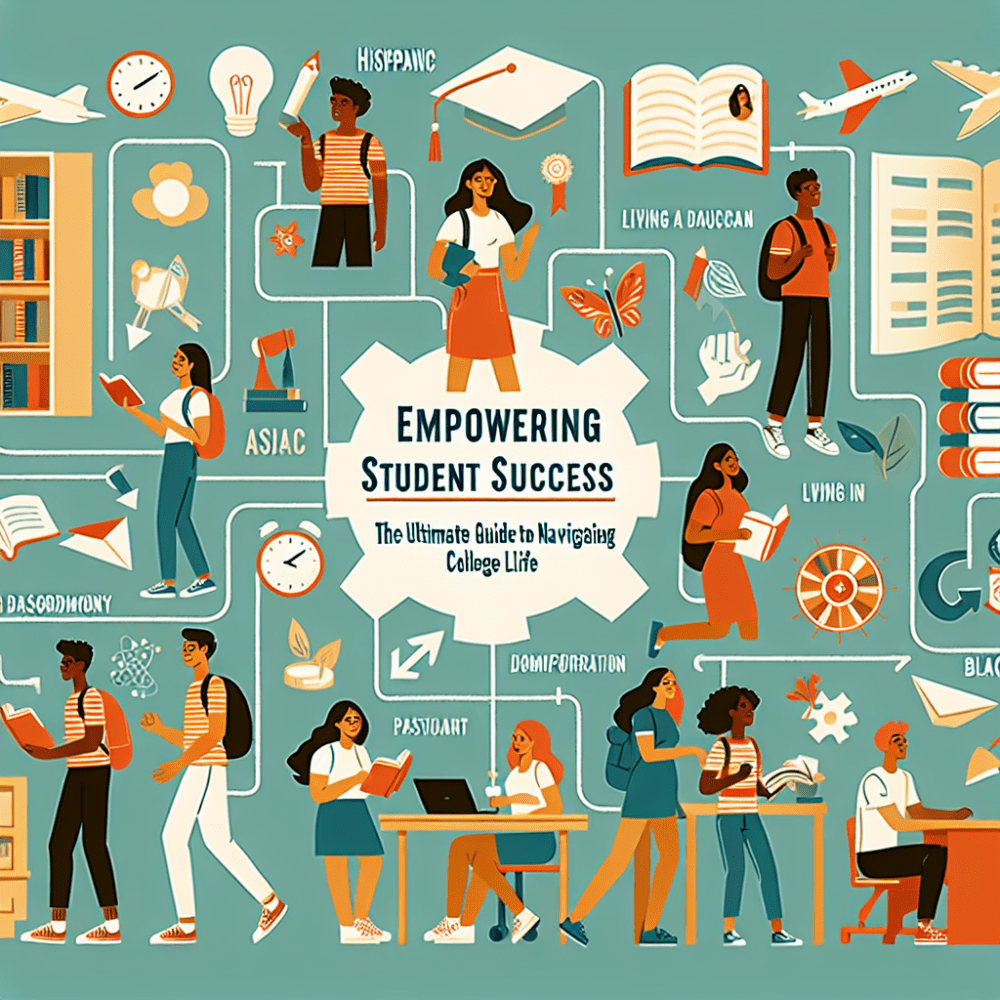
College life is an exciting and challenging journey that can shape our future in profound ways. It is a time of self-discovery, academic exploration, and personal growth. However, navigating through the college experience can be overwhelming, especially for first-generation students or those unfamiliar with the higher education system. This ultimate guide aims to empower students with essential knowledge and practical tips to enhance their success during their college years.
Whether you’re just starting your college journey or already a seasoned student looking for some guidance, this comprehensive guide covers everything you need to know to navigate college life successfully. From managing your time effectively to building meaningful relationships and finding the right resources, read on to discover valuable insights that will help you make the most out of your college experience.
Choosing the Right Major and Courses
One of the critical aspects of a successful college experience is selecting the right major and courses. Many students struggle with deciding what field they want to pursue. It’s essential to consider your passions, strengths, and long-term goals when choosing a major. Researching different career paths associated with each major can provide valuable insights into potential opportunities after graduation.
To find the right courses within your major, it’s recommended to consult your academic advisor or faculty members who specialize in your field of interest. They can provide guidance regarding prerequisite courses, elective options, and any additional requirements specific to your chosen program.
Effective Time Management Strategies
College life often presents numerous responsibilities that can easily overwhelm students. Therefore, developing effective time management strategies is crucial to stay organized and maintain a healthy work-life balance.
Firstly, creating a schedule or using a planner can help you prioritize tasks, set realistic goals, and allocate time for studying, attending classes, and engaging in extracurricular activities. Breaking down larger tasks into smaller, manageable chunks can make them more attainable and less intimidating.
Another helpful tip is to minimize distractions by implementing techniques such as the Pomodoro Technique, where you work for a focused period of time (e.g., 25 minutes) and take short breaks in between. This method promotes productivity while preventing burnout.
Building Meaningful Relationships
College offers an excellent opportunity to meet new people from diverse backgrounds and establish lasting connections. Building meaningful relationships can not only enhance your social experience but also provide support networks that can contribute to your overall success.
To foster positive relationships with your peers, make an effort to engage in extracurricular activities or join student organizations aligned with your interests. These groups provide platforms to connect with like-minded individuals who share similar passions and goals.
Furthermore, developing connections with faculty members can be highly beneficial. They possess invaluable knowledge in their respective fields and are often willing to provide guidance and mentorship opportunities. Regularly attending office hours or reaching out via email demonstrates your commitment to academic success.
Finding Academic Support Resources
Colleges typically offer a range of resources dedicated to supporting student academic success. Familiarizing yourself with these resources early on can significantly enhance your college experience.
The campus library is an essential resource that provides access to books, research materials, databases, and study spaces. Understanding how to navigate library systems and effectively utilize these resources can greatly contribute to your academic achievements.
Another valuable resource is the writing center, where trained tutors can assist you in improving your writing skills and providing feedback on your assignments. Additionally, many colleges offer tutoring services in various subjects to help students grasp challenging concepts and excel academically.
Maintaining Physical and Mental Well-being
College life can be demanding, both academically and personally. Therefore, prioritizing physical and mental well-being is crucial for long-term success and overall happiness.
Regular exercise, a balanced diet, and sufficient rest are essential for maintaining physical health. Engaging in physical activities such as joining a sports team or attending fitness classes can help reduce stress levels and promote a healthy lifestyle.
Mental well-being is equally important. Taking breaks when needed, practicing self-care activities like meditation or journaling, and seeking support from counseling services are effective strategies to manage stress and maintain mental health throughout your college journey.
FAQs about Navigating College Life
Q: How should I choose my roommate?
A: When choosing a roommate, consider factors such as compatibility, cleanliness habits, study habits, sleep schedules, and personal boundaries. Communicate openly about expectations to ensure a harmonious living arrangement.
Q: What should I do if I’m struggling academically?
A: Reach out to professors or academic advisors for guidance. They can provide suggestions on study strategies or connect you with academic support resources such as tutors or study groups.
Q: How do I manage financial responsibilities while in college?
A: Create a budget to track your expenses and identify areas where you can cut costs. Apply for scholarships, grants, or part-time jobs to alleviate financial burdens. Additionally, many colleges offer financial aid offices that can provide guidance on managing expenses.
Q: How can I make the most out of my college experience?
A: Get involved in campus activities and organizations that align with your interests. Attend lectures, workshops, and networking events to expand your knowledge and connect with industry professionals. Additionally, take advantage of internship or research opportunities to gain practical experience in your field of interest.
Q: What should I do if I’m feeling homesick?
A: It’s common to feel homesick during the transition to college. Stay connected with family and friends through phone calls or video chats. Engage in activities that remind you of home, such as cooking familiar meals or decorating your living space with personal mementos.












